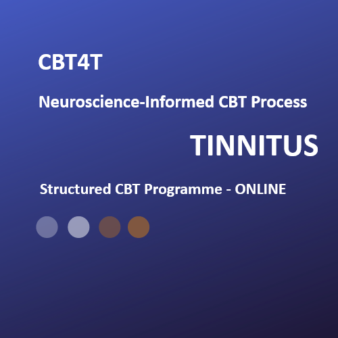19 December 2017
Why is therapy support being made available now?
1. Analysis of TEP Users presented at the University of Manchester 10 November 2017
- I completed an analysis of the use of the Tinnitus E-Programme (TEP) in November that included the first 22 users (from July 2017) that I presented at the University of Manchester Tinnitus Study week. There are more people who have registered since of course.
- The main outcome of the analysis was that more than 50% (12 of the 22) of those sending in their initial THI (Tinnitus Handicap Inventory) had scores rating beyond the “Moderate Tinnitus Distress” category (58% or higher).
- The same pattern has unsurprisingly continued for those registered since I completed the analysis. These high levels of tinnitus distress make self-directed learning and practical application extremely challenging, and many registrants are understandably giving up early - often as soon as after Module One - and therefore not completing the course.
- I have run tinnitus management clinics for 25 years +, mostly NHS and more recently in private practise, and would never expect any patient with such high levels of tinnitus distress to manage on their own without support.
- The online self-directed Tinnitus E-Programme was never intended for these levels of tinnitus distress.
2. Key Findings of the Independent Evaluation of the Tinnitus E-Programme by the NHS NIHR NHBRU (2014-2016) - final research paper still awaiting publication
The second and supporting findings indicating a need for change came through the NHS NIHR NHBRU independent evaluation of the Tinnitus E-Programme:
- 1, 2 and 6 were good outcomes
- 3, 4 and 5 reflected the shortfalls
- These were rectified as indicated in red below:

1. Acceptability of the Tinnitus E-Programme was high among people with tinnitus ü
2. Benefits gained focused on knowledge, acceptance, coping and behaviour change ü
3. User engagement varied across the self-managed components û
User engagement vastly improved through direct therapist input (incorporated July 2018) ü
4. Relaxation component was valued by users but adherence to the relaxation goals was poor û
Relaxation component highly valued by users; adherence to the relaxation goals vastly improved through direct therapist input and additional behaviour techniques* incorporated in to the course ü
5. Adherence may be improved with additional behaviour techniques*
Additional behaviour techniques* incorporated in to the course
6. It is important to deliver the programme to the right people at the right time ü

